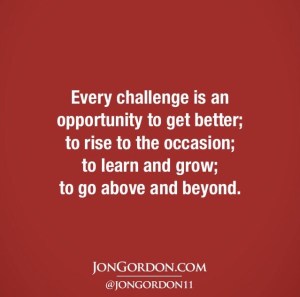To get better. To rise. To grow. To learn. To go above. To go beyond. All require a challenge. In the P-180 classroom, challenge presents itself in the form of commitment, not compliance. In P-180 classroom, challenge equals responsibility and ownership. When I presented my kids with an “A” 72 days ago, I did not set them on a path paved for success; indeed, I placed them on the rocky road of responsibility. In truth, the “A” was no gift it all. It was, instead a burden to bear, the ultimate challenge of facing oneself on a personal journey to get better, to rise, to grow, to learn, to go above, and to go beyond. Over the last week, two kids have taken a look within, facing that challenge. Here are their stories.
I thought he was on his way back from getting a tissue when I whispered, “Love to see an essay, kiddo.” And he barely nodded a “yeah” as he made his way back to his seat. I took his response as embarrassment for not having an essay in to me. Turns out he was not embarrassed, he was frustrated–maybe angry. He had not been over to the shelf to take care of a sniffle. He had left me a comment in the comment box.
“I don’t want to write summaries about the movies we watched. I want to write about something that interests me.”
I knew it was his comment because he is the only one in the class who writes in cursive. So, when I pulled the card and read it, I knew I had misunderstood our earlier, brief interaction. Ordinarily, I save student comments for “The Voices Within” post on the weekends, but I decided to handle this one differently, especially since I knew who had written it and had a better sense of what was going on. Here is what I wrote on the back of the card in response.
“I hear you, and I am sorry that you are frustrated. But I think it is an oversimplification to say that we are writing summaries about the movies we watched. The true intent here is to give you an opportunity to demonstrate proficiency with analysis, an opportunity for me to give you feedback to help you grow. In the end, the movies don’t matter, but your ability to analyze does, so if there is something else you want to write about to show me an analysis, I am all for it. Please let me know.”
I put it in an envelope and handed it to him yesterday. As class ended, he walked by and I just said, “Hey, dude. I just need you to show me you can analyze. I don’t care what you write about.” He smiled and said, I have an essay coming. The challenge? Doing what he didn’t want to do. It’s a challenge when we are young; it’s a challenge when we are old. And he has accepted the challenge. I’m not suggesting he’s happy about it, but I am suggesting that he will be better for it.
Next story. For nearly two weeks, she had avoided making eye contact with me. I knew why. “Operation Email” had brought Mom and Dad into the game, and she wasn’t pleased with our meddling. So, for the last several days, conscious of her stress level, I did not engage or push her. Yesterday, she stayed after class. She began by apologizing for not getting her essay into me yet. And then she let me in. “Here’s the deal, Sy. I am a procrastinator, but I am also a perfectionist, and the two do not make a good pair. I am nearly done, but I’m not turning it in till it’s perfect. I will have it to you tomorrow.” Honored that she had opened up to me, I let her know that I was sorry for the stress and that I was glad that she was making her way through it. As she was leaving, I told her that her parents and I just cared, and she gave me the famous, yeah-I-know-but-whatever teenage smirk. She, as he above, though not happy, will be better for accepting and facing the challenge of that which often presents the biggest hurdle of all–oneself.
Happy Friday, all. Off for two weeks now. Looking forward to the break. See you back here in January. Happy Holidays!












